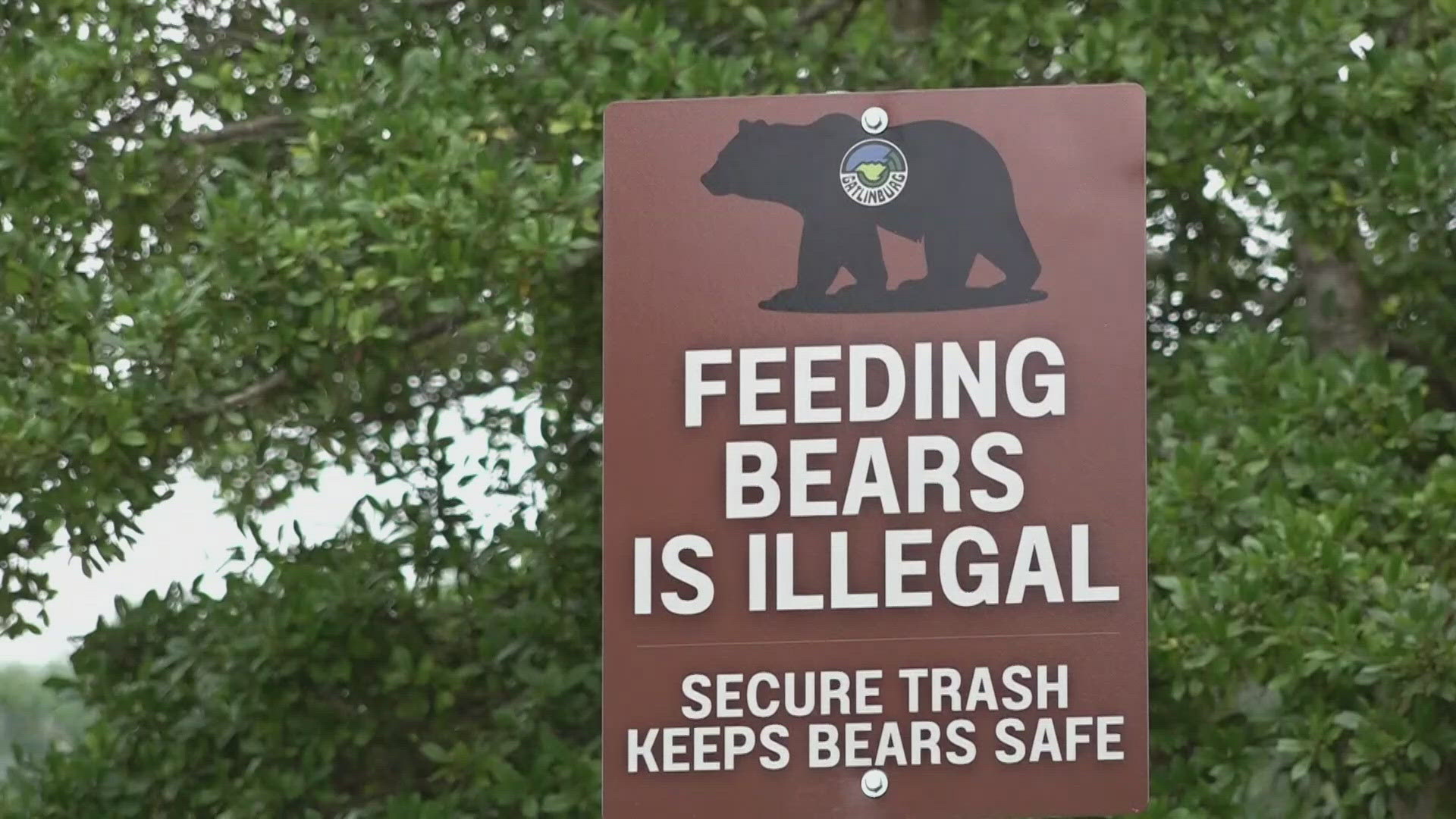GATLINBURG, Tenn. — The Great Smoky Mountains said Tuesday that three trails and a campsite were closed for bear activity, after rangers received a report that a bear encountered hikers on Aug. 11. The report is the latest in a sudden spike in reports of people and bears encountering each other.
The Tennessee Wildlife Resources Agency said so far in 2024, there have been six reports of people and bears making physical contact in Gatlinburg. In 2023 and 2022, there were a total of two reports in Gatlinburg.
"We are in bear country and we have a lot of bears," said Dan Gibbs, the Bear Program Leader with TWRA. "The issues we have in Gatlinburg, part of the state has issues like this."
Gatlinburg hosted an open house Tuesday, partnering with agencies to show people how they can stay safe in bear country. They gave people instructions on how to stay BearWise, such as carrying bear spray and never leaving out food. Hikers who see bears should change their directions, and throw objects like rocks or sticks if a bear approaches while also shouting.
Above all, people should keep their distance from bears. Wildlife officers said black bears are naturally hungry animals.
"They eat a lot. That's what bears are about, they are about eating," said Gibbs. "They know tricks to different kinds of doorknobs."
As a result of an increase of bear activity, the national park said it had to close three trails and a campsite, listed below.
- Dry Sluice Trail
- Grassy Branch Trail
- Cabin Flats Trail
- Campsite 49
A spokesperson for the Great Smoky Mountains said the first few weeks of August are usually a stressful time for bears. The bears' main food source comes from berries, which can dry up around this time. Rangers also said acorns aren't ready for bears to snack on, so bears may travel farther in search of their next meal — eventually encountering trash bins or snacks left by hikers.
"It's an easy source, a lot of calories and they are going to take advantage," said Gibbs.
Wildlife officers said dangerous human-bear interactions have led to officers having to euthanize a total of 16 bears in the Gatlinburg area so far. However, they emphasized that not every bear they encounter needs to be euthanized — only ones that show a danger to people.
Many bears are taken to the Appalachian Bear Rescue to be rehabilitated and treated, before being released or relocated. The nonprofit is currently caring for 25 bear cubs.

